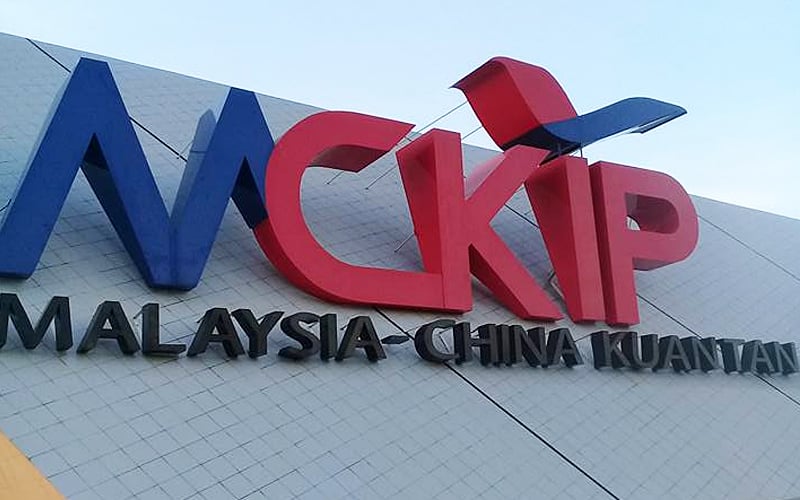
PETALING JAYA: During his recent trip to China, Prime Minister Anwar Ibrahim and Chinese President Xi Jinping highlighted that this year marked the 10th year anniversary of the China-Malaysia comprehensive strategic partnership.
The tangible manifestation of this strategic partnership is arguably the Malaysia-China Kuantan Industrial Park (MCKIP) in Kuantan, Pahang.
Officially launched in 2013, this industrial park is now home to a huge China-owned steel manufacturing plant, Alliance Steel (M) Sdn Bhd, which employs 4,000 mainly Malaysian workers.
The other companies which have set up shop at the park include lead acid battery manufacturer Camel Power Trading Sdn Bhd, and spun pile manufacturer Industrial Concrete Products Sdn Bhd. More manufacturing facilities are expected to be set up there in the coming years.
Including all the companies in MCKIP, and the adjacent Kuantan Port, some 10,000 jobs have been created, resulting in a huge boost not only for Kuantan but also the economy of the East Coast region, said Teruntum assemblyman Sim Chong Siang.
“I hope that it continues to bring more jobs (and investments) into the state. People from as far as Jerantut, Pekan, Kemaman, and Terengganu have also benefited from the project,” he told FMT Business.
MCKIP covers more than 3,500 acres and its development will be in three phases. Phase 1 (MCKIP 1) covers 1,200 acres of which 710 acres are occupied by the massive Alliance Steel complex.
MCKIP 2 will cover 1,000 acres, and MCKIP 3 will take up 1,300 acres. MCKIP 1 and 2 cater to heavy and medium industries while MCKIP 3 will target logistics hubs, light industries, residential and commercial components.
Economic spillovers
According to the international trade and industry ministry (Miti), MCKIP has realised RM14.55 billion in investments, and RM15.45 billion more has been committed. The industrial park is estimated to hit a gross development value of RM45 billion when completed.

“MCKIP has created a lot of economic spillovers,” Miti China section director Unny Sankar Ravi Sankar told FMT Business.
He pointed out that Alliance Steel has been the main driver in providing Malaysian service providers opportunities to be part of the economic cycle of the industrial park.
Unny said the Pahang government had attested that MCKIP has contributed to the state’s economic growth. “That’s why it has grown to three phases, totalling 3,500 acres,” he said.
As part of the MCKIP initiative, a new deep-water terminal at the nearby Kuantan Port was constructed that allows investors such as Alliance Steel to import raw materials as well as facilitate trade and business activities in the East Coast region.
MCKIP is a joint venture between a Malaysian consortium (51%) led by IJM group and a Chinese consortium led by Guangxi Beibu, a state-owned logistics company.
Alliance Steel is a joint venture between Guangxi Beibu and Guangxi Shenglong Metallurgical Co Ltd. News reports indicate Alliance Steel had invested about US$1.4 billion (RM6.2 billion) in its complex in MCKIP.
Reflecting the partnership between the two countries, there is a sister park called the China Malaysia Qinzhou Industrial Park (CMQIP) located in Qinzhou, in the autonomous region of Guangxi, which has been designated by the Chinese government as the gateway to Asean.
Qinzhou Port and Kuantan Port have become sister ports, while Qinzhou and Kuantan have become sister cities. The CMQIP has a street named after Kuantan while the MCKIP has a road named after Qinzhou.
‘Two Countries, Multiple Parks’
Given the success of the “Two Countries, Twin Parks” approach, Unny said there have been deliberations to extend this concept to more cities, that is, “Two Countries, Multiple Parks”.
“Malaysia has taken a positive approach to propose to China to have some of our own projects in China to be listed under the Belt and Road Initiative (BRI),” he said. He declined to reveal more details as discussions were ongoing.
During his three-day trip to China, Anwar reaffirmed the strong economic relations between the two nations, citing burgeoning trade figures, flagship projects under BRI such as the East Coast Rail Link (ECRL), and the “Two Countries, Twin Parks” in Kuantan and Qinzhou.
Miti’s trade and investment mission to China, in conjunction with Anwar’s visit, also generated RM170 billion of potential foreign direct investment (FDI), and RM2.44 billion worth of potential exports to the republic.
Trade between the two countries has been increasing over the years, hitting RM487.1 billion in 2022. China was Malaysia’s top investor last year, making up almost a fifth (21%) of the RM264.4 billion in approved investments.
Next year will also be a significant milestone for the two nations as they will be marking the 50th anniversary of the establishment of diplomatic ties.
Maybe by then, the “Two Countries, Multiple Parks” collaboration envisaged by Miti will be a reality. - FMT



No comments:
Post a Comment
Note: Only a member of this blog may post a comment.